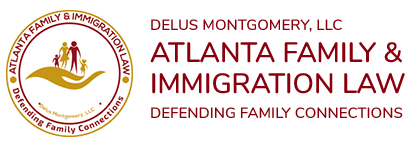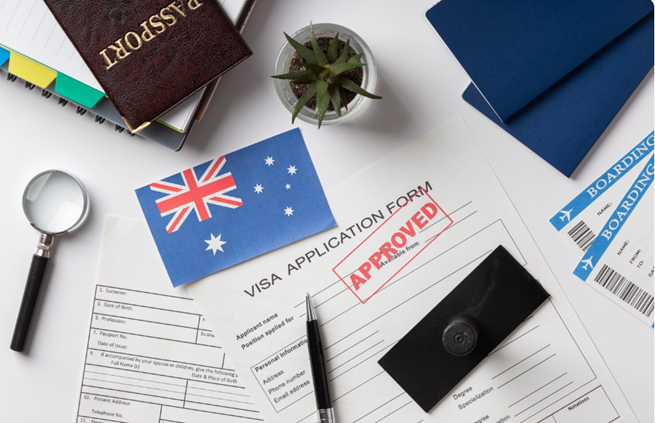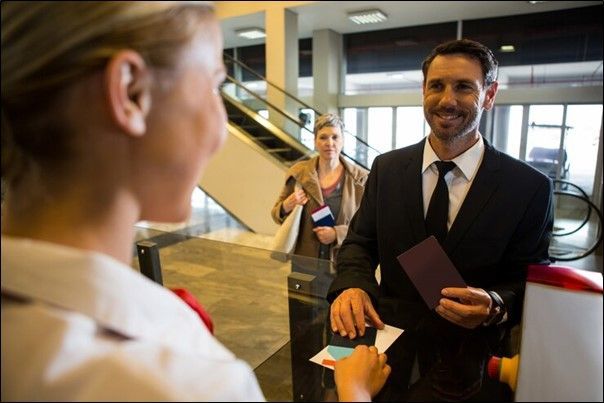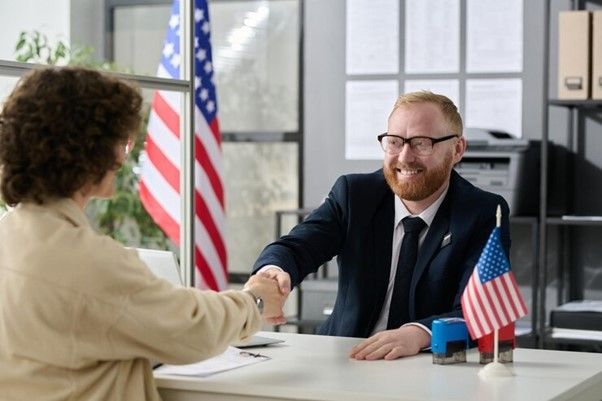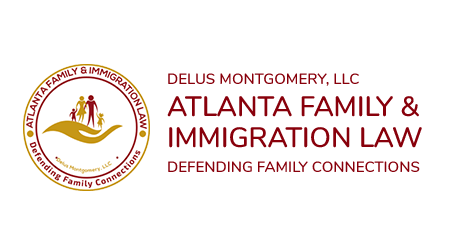IMMIGRATION LAW
PASSIONATE ADVOCACY FOR IMMIGRANT EMPLOYEES
EMPLOYMENT IMMIGRATION ATTORNEYS IN ATLANTA
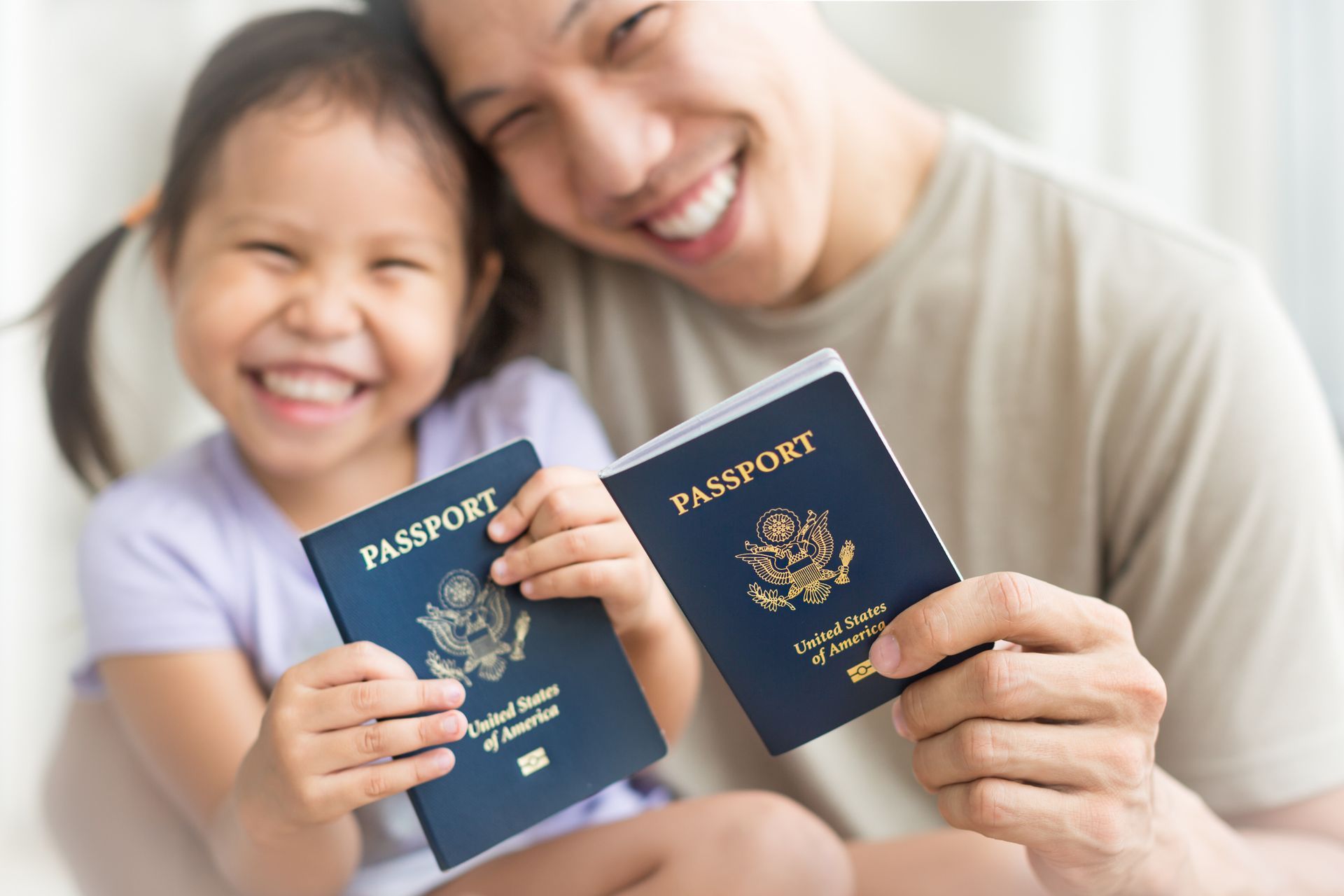

ATLANTA IMMIGRATION LAWYERS
Immigration Attorneys Fighting for Noncitizens in Georgia & Abroad
No matter your immigration status, at Atlanta Family & Immigration Law, we can help. Whether you are in the beginning stage of seeking information about your immigration issue or have already started working through the process, our team of experienced Atlanta immigration attorneys can provide the answers and support you need in pursuing your immigration goal.
As products of immigration ourselves, we understand the stress and uncertainty you may be facing which only reinforces our passion to serve you with competence and care.
Have an immigration issue? Discuss your needs with an Atlanta immigration attorney by requesting a consultation online or at (678)601-5580. We serve clients in Fulton, Clayton, Cobb, and DeKalb counties as well as clients in their home countries abroad.
Immigration Laws & Issues
According to figures posted by the U.S. Department of Homeland Security, more than one million people obtain lawful permanent resident status in this country each year with many proudly calling Atlanta their new home.
The American Immigration Council reports that approximately 10% of all individuals living in Georgia were born abroad and one out of every 13 residents is a natural-born citizen but has at least one immigrant parent. The top nation that Georgia immigrants originate from is Mexico, followed by India, Korea, and Guatemala.
In spite of the high numbers of immigrants, this country's immigration laws are complex, featuring input and requirements from several different agencies, including:
- Immigration and Customs Enforcement
- Customs and Border Protection
- U.S. Citizenship and Immigration Services
- Immigration Court
- Board of Immigration Appeals
- U.S. District Court
- U.S. Court of Appeals
If you are planning to migrate to the U.S., as an individual, family, or business, an experienced Atlanta immigration lawyer can help make sense of the process. Atlanta Family & Immigration Law can help - call (678) 601-5580 to schedule a consultation with an experienced Atlanta immigration attorney.


Why Do I Need an Atlanta Immigration Attorney?
People come to the United States for a number of reasons, including:
- They work for a corporation that is based in the U.S.
- They own a foreign company and wish to establish a presence in the U.S.
- They are international medical school graduates who wish to work in a medically underserved area in the nation.
- They are artists, entertainers, or athletes who wish to obtain the proper visa necessary to perform or compete in the U.S.
- They are individuals who wish to attend school, work, and raise a family in the U.S.
The United States Immigration process is notoriously challenging to navigate.
An experienced immigration attorney will be able to help make sure you meet all eligibility requirements, don’t miss deadlines, and follow the process exactly in order to help make your immigration process as smooth as possible.
How Our Atlanta Immigration Lawyer Can Help
Whether you're coming to Atlanta to visit, are planning to stay temporarily for work-related reasons, or you'd like to become a naturalized citizen, an Atlanta immigration lawyer can provide a number of services, including:
- Guidance in determining the proper visa necessary for your stay based on your status as a worker, student, or relative of a citizen.
- Assistance with citizenship services, including ensuring that all of the required paperwork is filed with the agency that requires it.
- Assistance with immigration-related issues, such as expired visas and removal actions (deportation defense).
- Assistance with removing immigration conditions in order to allow you greater freedom in the U.S.
- Guidance to employers who wish to attract or keep foreign workers in the U.S.
- Help for refugees who are seeking asylum in Atlanta.
- Assistance with family and marriage visas.
- Help with tourist visas.
Visas for Non-Immigrants in Georgia
Many different types of visas have been established for non-immigrants including
- Temporary business visitors,
- Treaty trader or investors,
- Specialty occupation professionals,
- Special education and educational exchanges for trainees, interns, and research scholars
- NAFTA professionals
Visas for Individuals and Families in Georgia
Several immigrant visas also exist for individuals and families, including those for:
- Aliens with extraordinary ability
- Outstanding professors and researchers
- Multinational managers and executives
- Advanced degree professionals
- Skilled or unskilled workers.
What We Can Assist with for Families
For families, an Atlanta immigration lawyer can assist with:
- Alien Relative Petitions in all family-based preference categories
- Marriage-based adjustment of status
- Fiancé visa applications
- Naturalization
- Parole in place for military family members
- Replacement of lost permanent resident cards
When Should You Call an Immigration Lawyer?
You will want to call an immigration lawyer right away if you are facing any immigration issue, such as:
- Eligibility for green card
- Eligibility for work or student visas
- You want to help a family member immigrate
- You have received notice of deportation proceedings
Can You Apply for a Green Card Without a Lawyer?
Technically, you do not need a lawyer in order to apply for a green card. That being said, it is always advisable to at least speak to an experienced attorney about your immigration case in order to have the best possible chance at a favorable outcome.
Green cards are complicated and an attorney will be able to make sure you do everything correctly.


Contact Our Atlanta Immigration Lawyer Today
Whether you're in a foreign country and are planning to move to Atlanta or you're here already and need assistance with immigration-related services, it is never too early or late to reach out to an Atlanta immigration lawyer who can provide guidance in your situation.
The immigration process involves a lot of time and court-ordered requirements that are best met through early preparation.
Examples of When to Speak to a Georgia Immigration Lawyer
If you are experiencing any of these situation, we highly recommend you contact an immigration lawyer:
- If you are a business owner seeking immigration services on behalf of your employees.
An Atlanta immigration lawyer can give you peace of mind in knowing that you are following the letter of the law and are not placing your employees in a legally ambiguous situation.
- If you are attempting to obtain a visa in order to have a loved one join you in the U.S.
An experienced immigration lawyer can provide the know-how to ensure that you are reunited with your relative as soon as possible.
- If you have become the subject of immigration removal (deportation) proceedings but a judgment has not yet been rendered
The best time to seek the assistance of an attorney is before the proceedings have begun.
However, even an attorney who arrives late in the process may be able to assist you in delaying your removal in order to tie up loose ends or may even be able to help get the trajectory of the case against you reversed.
Don't leave your dreams of living, working, and raising your family in Atlanta to chance and to the discretion of federal agencies. Let us help you understand your options and provide you with the immigration services you need.



